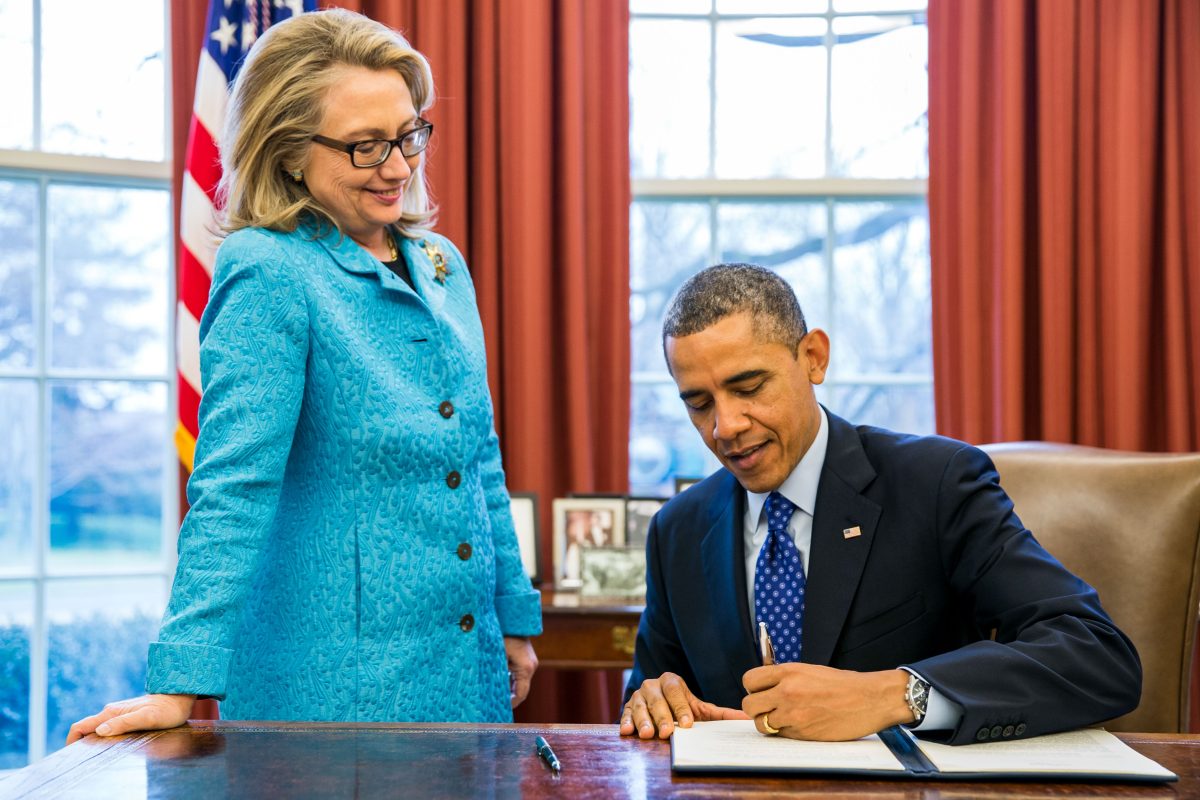If you didn’t vote for Barack Obama, you’re racist. If you didn’t vote for Hillary Clinton in 2016, you’re sexist. Do these claims sound ridiculous? They should. Identity politics – politics based on cultural, religious, racial, ethnic, social or sexual group factors – started with good intentions, acting as an equalizer to remedy historical injustice. I used to support this mindset when approaching policy making. However, identity politics has become more toxic and exclusive in more recent years. So, here’s why I changed my mind and how we can move forward.
The biggest issue I take with modern identity politics is that many intellectual discussions have veered away from achieving equality to comparing marginalization. That isn’t to say we shouldn’t acknowledge historical discrimination at all. However, the left has begun to participate in the oppression Olympics – attempting to prove that one group’s opinion is more legitimate by being more oppressed.
The biggest struggle I’ve had as an Asian-American immigrant is proving that I am a citizen. Sure, I’ve had people misidentify me as Chinese when I’m Vietnamese. Moreover, I’ve experienced people thinking I am someone else because apparently, all Asians look the same. But those are minor transgressions, and I move on with my life after two minutes.
However, it was a different tale when I was applying for university scholarships. Several colleges notified me that I was ineligible to receive tuition awards if I were to earn them because of my citizenship status. Naturally, I was confused since I held a passport, had recently received my selective service card and was in the process of registering to vote. It turns out that the Social Security Administration had not changed my status as a permanent resident to a citizen for 17 years. Additionally, I had to be naturalized to receive my certificate of citizenship even though I have never known any other home than America.
Of course, I recognize that for many other immigrants, their struggles are much harder as they have to pass the citizenship test and live in the U.S. for at least five years. At the same time, does the fact that others have gone through worse invalidate my experiences? Or does it mean I have a less valid opinion or have less of a right to contribute to immigration discourse?
Unfortunately, the left’s modern identity politics would veer towards a “yes.” Identity politics has turned into a game of tribalism, a retreat into in-groups that results in claims that outsiders cannot possibly understand their experiences. And this is true; I don’t understand black or LGBTQ+ or Muslim experiences. At the same time, they don’t understand the Asian–American or immigrant’s plight. In the end, identity politics has turned from a way to create an equal playing field to a race to the bottom to see which group has experienced the most oppression.
Where identity politics becomes more destructive is when people use it as a purity test for candidates. For example, I will support Bernie Sanders or Elizabeth Warren because I fundamentally agree with their progressive policy platforms. I err towards Sanders on some issues, but I favor Warren on others.
According to Democratic strategist Emily Tisch Sussman, I am “showing [my] sexism” if I don’t support Warren over Sanders since their policies are so similar that the two are essentially the same candidate. Moreover, the former’s plans are supposedly more detailed. But hold on a second, would that mean I’m antisemitic if I support Warren since Sanders is Jewish? Of course not. Using identity as a primary criterion for choosing a candidate ultimately leads to a stalemate in our race to the bottom.
By far the most significant transgression when it comes to candidates is when “woke” leftists accuse Trump supporters of being racist. Is Trump racist? Yes. However, engaging in identity politics and calling conservatives racist has been ineffective and if anything galvanized Trump’s base. Also, white people are tired of being called privileged based on the color of their skin. Yes, a white privilege indeed exists to an extent, and about 56 percent of people believe this is true according to the Pew Research Center. However, 17 million white, non-Hispanic Americans also live below the poverty line. Therefore, they face socioeconomic oppression and are not as privileged as some liberals would have you believe.
I’m afraid in today’s political climate. I’m very scared that I, like one in four Asian-Americans, will experience discrimination in the workplace or when applying for a home. I’m afraid I won’t be able to provide for my family or that others will drown out my voice because I haven’t been oppressed enough. Instead of trying to one-up each other on how our lives have sucked, can we instead realize that we have different experiences? We can agree that oppression in any form is oppression, right? Instead of arguing about who’s gotten the worst end of the stick, let’s discuss how to move forward.
Why I oppose identity politics
November 4, 2019
Photo by via The National Archives
Secretary of State Hillary Clinton watches as President Barack Obama signs a memorandum to Promote Gender Equality and Empower Women and Girls Globally Jan. 20, 2013.
0
Donate to The Battalion
$1765
$5000
Contributed
Our Goal
Your donation will support the student journalists of Texas A&M University - College Station. Your contribution will allow us to purchase equipment and cover our annual website hosting costs, in addition to paying freelance staffers for their work, travel costs for coverage and more!










